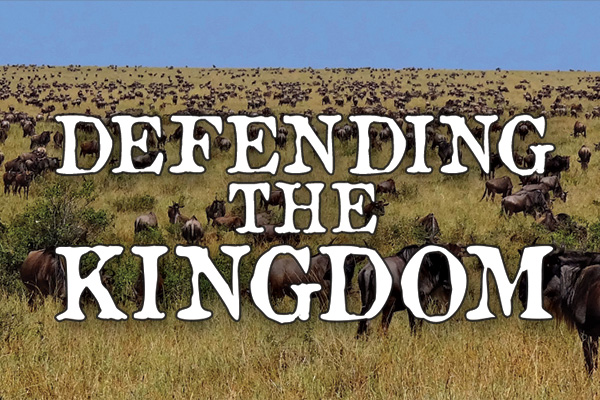Defending the kingdom | Issue 26
Eating meat - Not a defence of the kingdom
This analogy came to mind when she pointed out that the sheep, cows, pigs and chickens we eat would not exist if there were no industry breeding them for slaughter. This is an argument I had seen before but was not entirely sure how to address. It is certainly more complicated than “but I like bacon too much” but, to me at least, seems just as ludicrous. With the help of Carl Scott; who recently scaled a 20m high pig farm silo to promote “vote[s] to stop factory farming,” I worked through what is wrong with justifying slaughter by saying the existence of farm animals depends on the meat industry.
First, there is nothing wrong with the animal not existing in the first place. But once it is born, restricting its autonomy and putting it through physical and psychological suffering in the name of meat is evil – as discussed in earlier columns. Farm animals getting a life and people getting to eat their flesh are the “positives” of meat, but this does not outweigh the negatives endured by the animals, the ecosystem and society. The wide-ranging implications of farming are topics for past and present columns, but it is certainly worthwhile pointing out that from a human perspective, far more people could be fed, and fed well, if we used our land to sustain plant-based diets.
This point is best explained by an ecologist, but it is simple enough to understand that the land used to feed stock, both directly by grazing animals and indirectly by producing feed, is not going to sustain less sentient life if farm animals do not exist. The land could sustain wildlife, like great tracts of forest used to. Or, as is far more realistic, the land could grow food for far more people. The root cause of all animal welfare issues and the phenomenal rate of animal extinction is humankind’s inflated sense of entitlement to everything on Earth. If we are that great, perhaps more of us should be fed. If not, or if we want to enjoy a more diverse, beautiful and sustainable planet, we should be reducing monocultures that exist to feed animals that exist to feed us, via the aforementioned enslavement and suffering.
Either way, people don’t need to control and then end lives for lives to exist. Like my grandmother chose not to embrace white privilege, we should not accept the way things are just because they are convenient.






